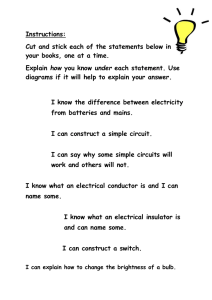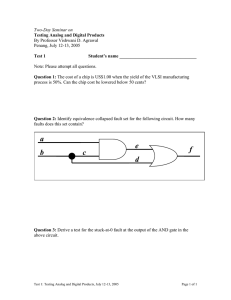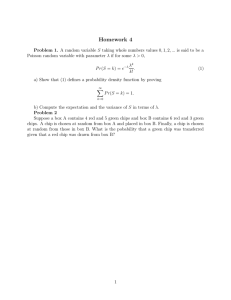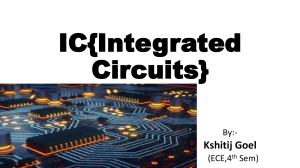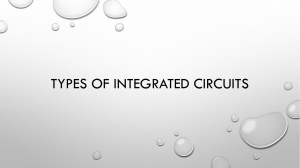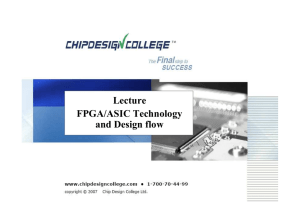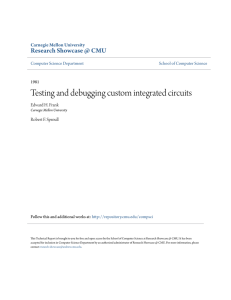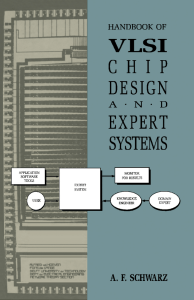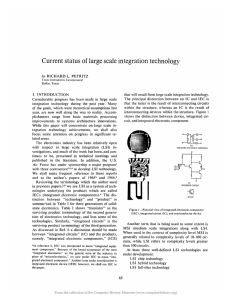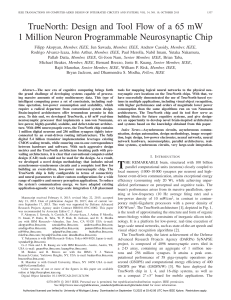Integrated circuits (ICs)
advertisement
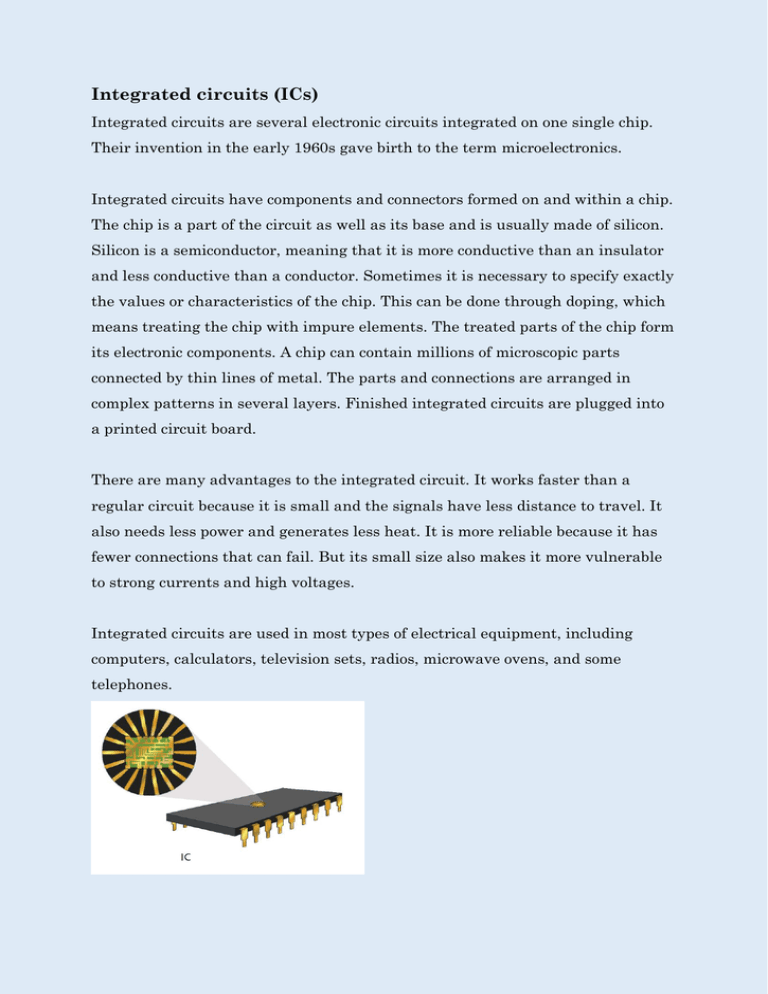
Integrated circuits (ICs) Integrated circuits are several electronic circuits integrated on one single chip. Their invention in the early 1960s gave birth to the term microelectronics. Integrated circuits have components and connectors formed on and within a chip. The chip is a part of the circuit as well as its base and is usually made of silicon. Silicon is a semiconductor, meaning that it is more conductive than an insulator and less conductive than a conductor. Sometimes it is necessary to specify exactly the values or characteristics of the chip. This can be done through doping, which means treating the chip with impure elements. The treated parts of the chip form its electronic components. A chip can contain millions of microscopic parts connected by thin lines of metal. The parts and connections are arranged in complex patterns in several layers. Finished integrated circuits are plugged into a printed circuit board. There are many advantages to the integrated circuit. It works faster than a regular circuit because it is small and the signals have less distance to travel. It also needs less power and generates less heat. It is more reliable because it has fewer connections that can fail. But its small size also makes it more vulnerable to strong currents and high voltages. Integrated circuits are used in most types of electrical equipment, including computers, calculators, television sets, radios, microwave ovens, and some telephones.
